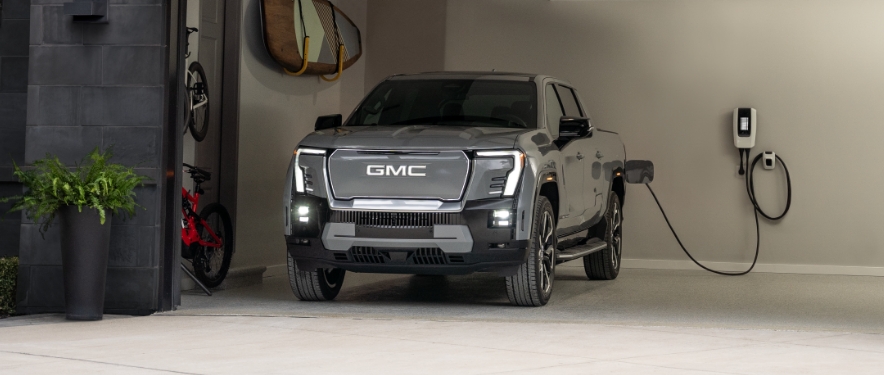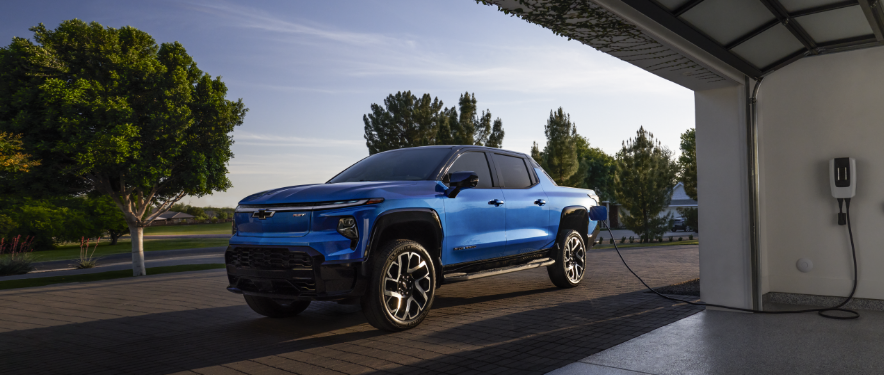- Home
- Financial Resources
- Financial Articles
- Guide to Auto Financing an Electric Vehicle

A Guide to Auto Financing for Electric Vehicles
By Jessica Llanes / 09/09/2025 / Electric Vehicles
With the increasing popularity of electric vehicles (EVs), potential buyers need to fully understand the cost of ownership.
This Q&A guide will cover:
- Ways to lease or finance a General Motors EV.
- Potential incentives that can make ownership more affordable.
- How to add home charging to your EV budget.
- Auto finance tips tailored to EVs.
Is it better to lease or finance an electric vehicle?
Your decision to lease or buy an EV depends on your budget, lifestyle, driving habits and long-term plans.
GM Financial offers competitive leases for new EVs. The terms are typically 24 to 36 months with customizable mileage options. Lease payments may be lower compared to financing your vehicle, and many lease terms coincide with the length of the manufacturer’s warranty. You can enjoy the latest technology and features, but there are mileage limits and lease-end fees. At the end of your contract, you can purchase your EV, turn it in or lease (or buy) a new vehicle.
If you choose to buy a new or certified pre-owned EV instead of leasing, you may be able to finance for terms up to 84 months. With a purchase, there are no mileage limits. You own your vehicle after completing your contract, so you can customize it however you wish. Keep in mind that monthly payments may be higher than with a leased vehicle. This is because you are paying for the entire cost of the EV during the finance term.
It may be helpful to evaluate the total cost of owning an EV to make a smart choice that fits your needs. This cost includes down payment, monthly installments, insurance, maintenance and tax incentives.
What incentives are available when purchasing an EV?
One enticing aspect of buying an electric vehicle is the incentives that may be available. These can include tax credits, state rebates and utility company incentives. By taking advantage of these programs, you can potentially reduce the cost of your EV.
Although federal tax credits have expired, there may still be other ways to lower the overall cost of your investment through state incentives or upcoming programs. For example, California residents may qualify for extra rebates under the Driving Clean Assistance Program. You may also qualify for tax credits and rebates for the purchase and installation of an EV charger and for off-hours electricity usage. But this depends on where you are located. You can search for incentives by ZIP code.
Do I need a home-charging station, and can I finance it?
The U.S. EV fast-charging network has experienced significant growth over the last few years. Despite changes in federal policies, private companies have stepped in to fund the expansion of fast chargers, helping to alleviate anxiety and support the increasing number of EVs on the road.
To help accelerate EV adoption, General Motors is providing drivers access to more than 250,000 public chargers and access to the Tesla Supercharger network through their mobile apps and has deployed Level 2 chargers (offering 150 miles of range in four to eight hours of charging1) and EVgo fast-charging stations at key destinations across the U.S. and Canada. To see how GM is helping to electrify charging deserts in rural communities, visit gmenergy.gm.com. You can also learn about public charging options and maximizing range.
Many EV owners also choose to add an EV charging solution to their home. Talk to your dealership about options to include a home charger in your vehicle contract. In select states,2 you can apply with GM Financial to finance home energy products purchased through GM Energy. You can apply to prequalify in under five minutes to see how much financing you qualify for. The prequalification won’t impact your credit. You can then choose your charging products and services and receive a quote.
Home charging for EVs continues to advance. Most EV owners charge their vehicles at home using Level 1 or Level 2 charging stations. Level 2 charging stations, which run on a dedicated 240-volt circuit, are becoming more popular due to their faster charging times. Some charging stations connect to home Wi-Fi networks, allowing users to monitor and control charging through mobile apps.
What other considerations do I need to think about unique to EVs?
Many auto finance tips apply to both traditional and electric vehicles, but EV buyers have a few extra things to consider. First, it's crucial to factor in the cost of electricity and potential savings on fuel expenses when calculating your budget. Second, knowing the warranty and maintenance costs of EVs will help you plan for future expenses.
Speak to your dealer about extras available for your electric vehicle. These include EV-specific protection plans and prepaid maintenance offerings. You can add them when you purchase your vehicle.
Are you ready to go electric?
No matter what EV you’re interested in, take financial steps to prepare before you head to the dealership. You can apply to prequalify with no impact to your credit score now that you understand how to navigate EV auto financing. If you’re ready to start shopping, visit our current offers page to see the latest deals.
1Actual range and charge times may vary based on several factors, including ambient temperature, terrain, battery age and condition, loading and how you use and maintain your vehicle.
2Financing your GM Energy purchase with GM Financial is currently offered in Alabama, Arizona, Arkansas, California, Colorado, Delaware, Florida, Idaho, Indiana, Iowa, Kansas, Kentucky, Maine, Maryland, Massachusetts, Michigan, Missouri, Montana, Nebraska, New Jersey, New York, North Carolina, North Dakota, Ohio, Oklahoma, Oregon, Rhode Island, South Dakota, Tennessee, Texas, Utah, Vermont, Washington, West Virginia, Wisconsin and Wyoming.
By Jessica Llanes, Cadillac Financial
Jessica Llanes is an off-road adventurer, EV enthusiast and bon vivant raised in New Orleans. When she’s not traveling, she enjoys sharing a homecooked meal with friends, curling up with an Agatha Christie novel, or binge-watching classic episodes of Top Gear (or Top Chef).
Related Articles

Debunking EV Charging Myths
Fact or fiction? See how we busted some of the typical stereotypes about electric car charging.
LEARN MORE
EV 101: Your Guide to Electric Vehicles
From batteries to charging to maintenance, here’s everything you need to know about EVs.
LEARN MORE